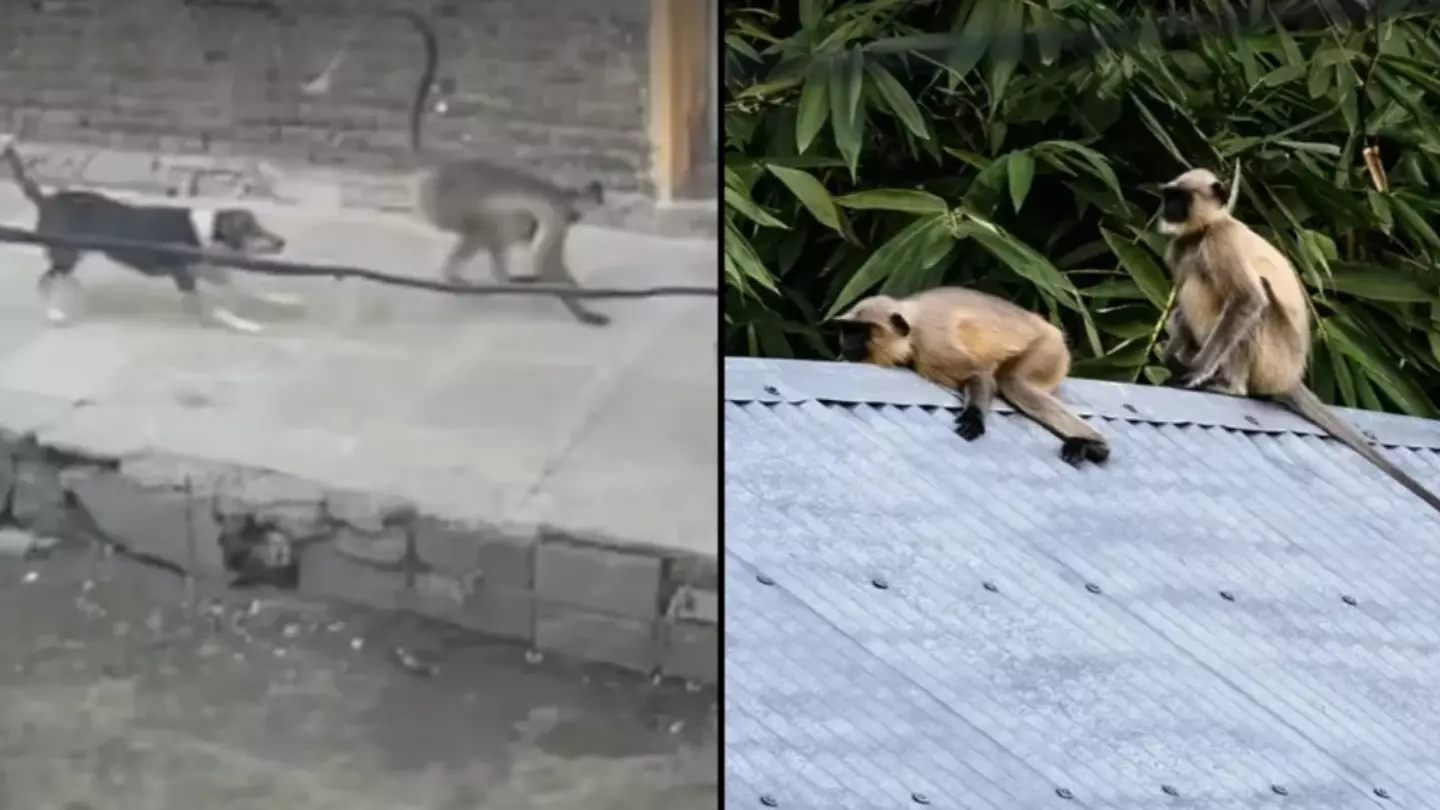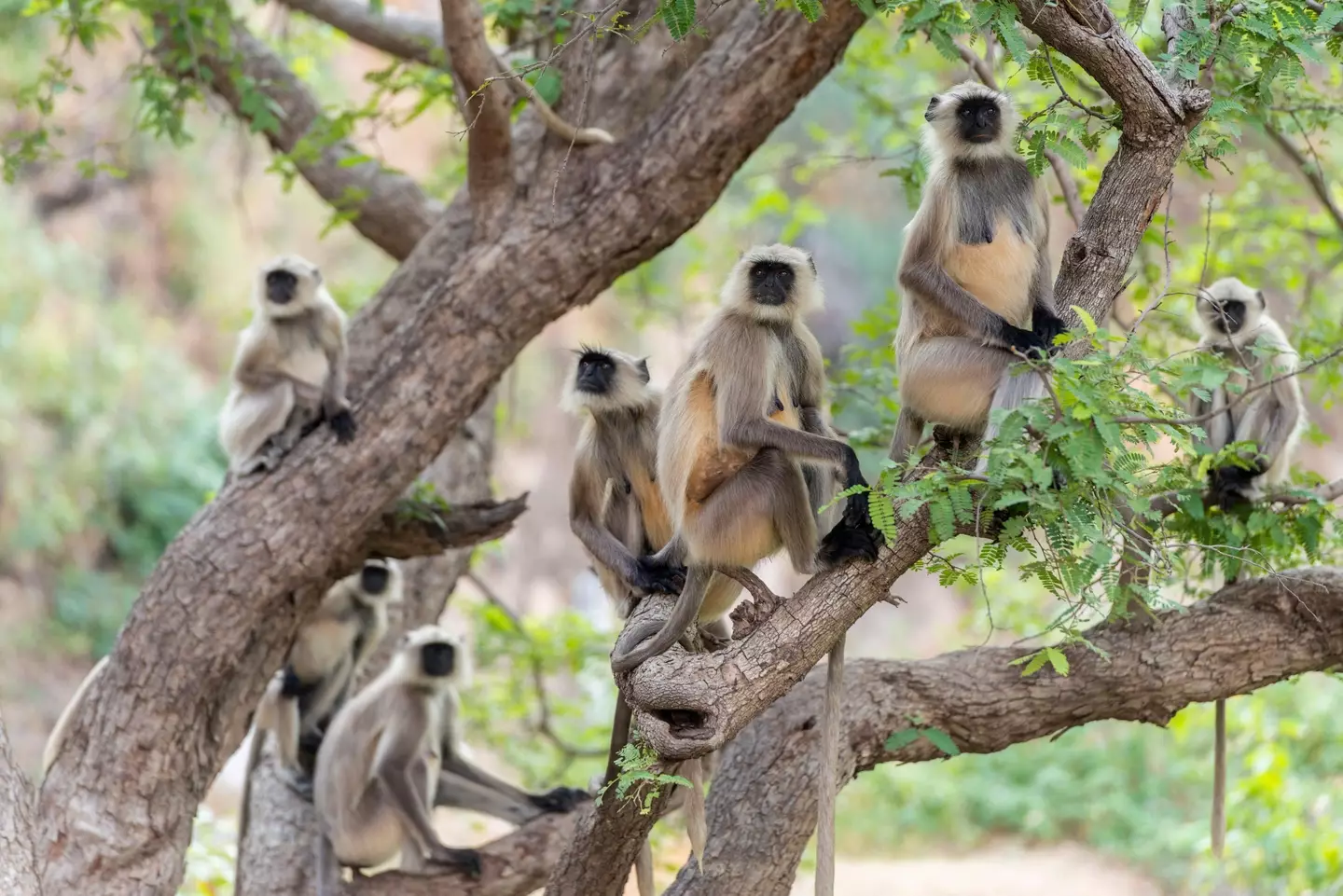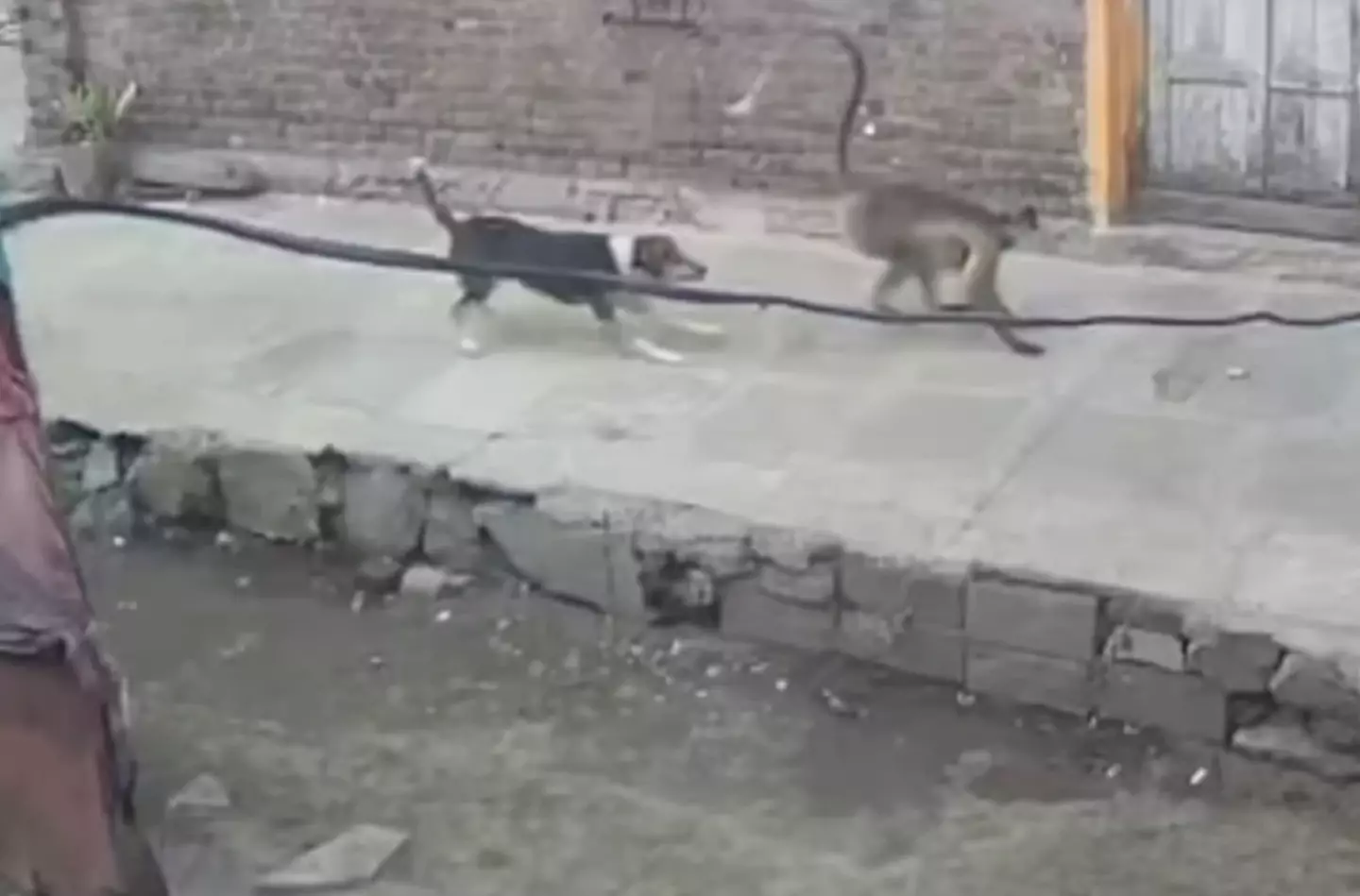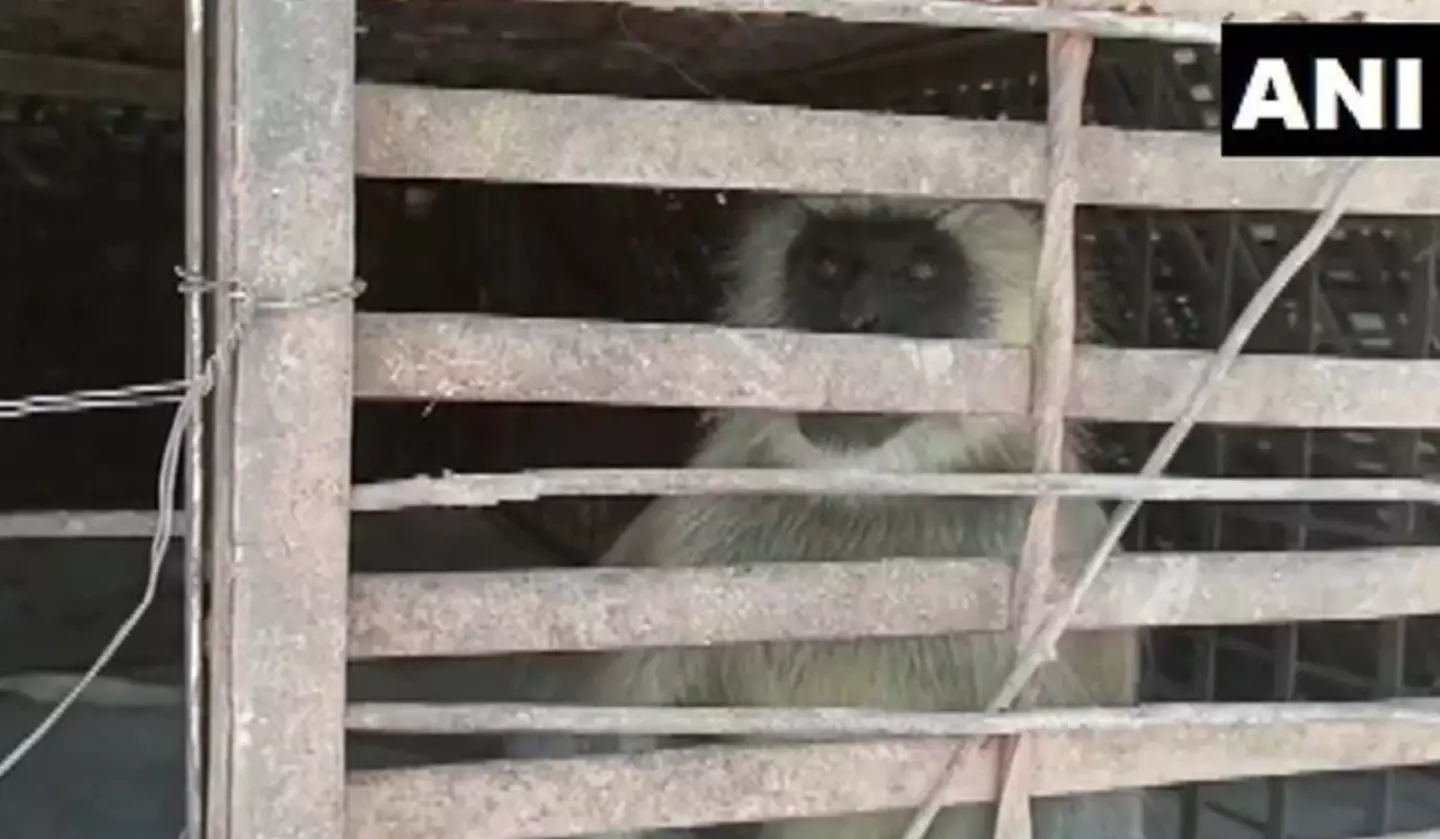
Two monkeys in India have been captured after being blamed for the deaths of hundreds of puppies.
The langur monkeys were reported by villagers in Lavool Village, located in the Beed district of Maharastra, who had seen them dragging puppies up to inaccessible heights and leaving them there to starve.
A local told the PTI news agency: "These two monkeys come to our village. They take away puppies with them to the roof of houses or to any other place at height.
Advert
"At such height, these puppies don’t get any food or water. Hence, they died naturally many times. But sometimes they fell from a height and died.
"Over 200 puppies had lost their lives in our village."

Some locals believe it is an act of ‘revenge’ after dogs killed a baby monkey - though Range Forest Officer Amol Munde told Zee News there had been no reports of dogs killing a baby monkey, and this was just a rumour started by locals.
Advert
He also disputed the number of puppies reported to have died, saying he was only aware of three or four puppies having been killed in this way.
Sachin Kand, another forest officer, confirmed that the two monkeys have now been caught.
Kand told ANI: “Two monkeys involved in the killing of many puppies have been captured by a Nagpur Forest Department team in Beed.
“Both monkeys are being shifted to Nagpur to be released in a nearby forest.”

Speaking to Vice, experts have explained that displays of aggression in primates – specifically in their relationships with humans – can be linked to a number of factors, including involuntary or voluntary feeding in close living quarters.
Advert
Mewa Singh, professor of ecology at Mysore University, told the outlet: “In the world and perceptual system of monkeys, someone offering food is the most submissive form of subordination. Monkeys start perceiving humans to be their subordinates.
“Next time they see a person with food, and the person does not offer the food to the monkeys, they are likely to get frustrated as if it was their right to be given that food. They are now likely to attack.”

Sumanth Bindumadhav, senior manager of wildlife disaster response for Humane Society International India, also suggested that while ‘vengeful’ primate behaviour has been reported in the media previously, we should proceed with caution before labelling animals in such a way without conclusive evidence.
Advert
“We often tend to associate ‘human’ sentiments to any animal. We call it ‘revenge’, or call them ‘angry’ or ‘aggressive’ without truly understanding the depth of it or the ramifications of associating anthropomorphic traits to animals,” Bindumadhav told Vice.
He added: “What is unfair is that without further investigation into the matter, the authorities have gone ahead and begun capturing the primates involved, which is a welfare concern and only contributes to increasing conflict with primates."
Featured Image Credit: INI
Topics: Animals, World News